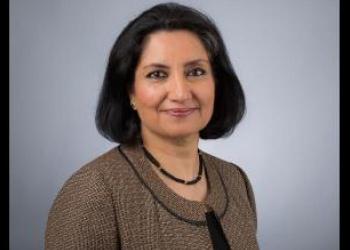Women, Faith, and Human Rights
When we consider the relationship between women, faith, and human rights, our minds may consider a variety of tensions and challenging questions. For instance: How do we honestly acknowledge and assess the ways in which religious communities have throughout history wielded their sacred scriptures and spiritual teachings towards divergent ends, at times to empower women and at times to subjugate them? How do we reconcile the role of faith and religion in contributing to processes of social transformation, and, specifically, to guaranteeing and preserving the fundamental human rights of women in a global community seemingly divided by the mounting tides of an aggressive, secular materialism, on the one extreme, and a resurgence in global violence carried out in the name of religion, on the other?
The wide range of competing conceptions of what constitutes religion contribute to the challenge in understanding its relationship to issues of social justice and human rights. Is religion a fixed and unchanging set of texts, doctrines, and practices which define relationships between people (including women and men), to whose literal interpretation humanity must mould itself into conformity? Or, is it a collection of norms and practices, limited in their universal applicability, that we can draw on where, when, and to whatever extent we find useful?
The Bahá’í community has found it helpful to conceive of religion as an evolving system of knowledge and practice, analogous to and complementary with science, aimed at contributing to the advancement of civilization. In this context, a religious community becomes a community of practice, engaged in a systematic process of learning as it strives to apply lofty and ennobling spiritual principles to create new patterns of social life.
We must acknowledge that none of us-- no group, no individual, no country, no leader --actually knows what a society that is truly based on the principles of gender equality looks like. Such a society has never existed. Therefore, while we may be able to identify some of the obstacles stymying gender equality in our current paradigm, we have to learn our way towards a new paradigm where gender equality is the norm. The path forward may not be entirely clear, but a path forward is urgently needed.
The great enterprise of ensuring human rights for all people, and of bringing about gender equality, in this light, can be understood as an urgently-needed learning process. In order to develop a new body of knowledge, we need to draw on humanity’s great systems of knowledge: religion and science. While there is much to share about each, I would like to offer some thoughts on religion in particular.
Religion reaches to the very roots of human motivation, allowing us to move beyond bare facts and observable phenomena, and helping us find meaning in the universe. Religion helps us translate initial excitement and enthusiasm for various causes and programs into sustained, long-term commitment to action. After all, the process of collective transformation needed to achieve gender equality is arduous indeed.
Religion elevates our vision of human nature and human character. We are not just an amalgam of cells and bones, tissue and sinew, that somehow have the emergent power of a higher consciousness. Religion enables us to understand that human beings are noble, they have dignity, and they are entitled to certain inalienable rights to safeguard their high station. Despite the secondary identities that are used to categorize us according to race, gender, religious affiliation,social status, and so forth, our more fundamental identity as human beings must recast all of our relationships in the light of oneness. This spiritual unity impresses upon us that our well-being is bound up in our neighbours’, no matter their gender, religion, or political association.
In order for religion to function alongside science as a system of knowledge and practice, we also need to develop scientific qualities and capacities of dispassionate inquiry and learning. Given that we have to learn what true equality looks like in practice, we need to ask questions and formulate hypotheses. We need to observe, study and rigorously test ideas we think will lead to the empowerment of women and girls. These ideas must be measured against the standard of key principles like justice, kindness, trustworthiness, and nobility. These efforts must unfold in a pattern of consultation, action and reflection so that observations and insights into effective practices can be better understood and continually improved. In this sense, then, religion should not be used to excuse the ossifying of antiquated ideals; it should serve as a dynamic knowledge system that provides much of the impetus for progress and advancement.
Religious leaders and practitioners, governments and policy-makers, do have pivotal roles to play in addressing the profound injustices that prevent women and girls from developing their full potential and playing their rightful role in the advancement of society. Normative frameworks, legal standards, and the social sciences have unequivocally affirmed the equality of all human beings. Yet it is the beliefs and practices about the roles and capacities of women of all ages, and the prevailing patterns of unequal relationships among boys and girls, men and women, that continue to be the most formidable obstacles to transformative and lasting change at local, national, and international levels. Such change will require, among other things, the systematic dismantling of social structures and practices that perpetuate inequality and the marginalization and oppression of women and girls.
The knowledge of how to create a just society cannot become the province of select segments of humanity. The principle of oneness, with its attendant implications around justice and universal participation, means that human rights for all cannot be secured by a small pocket of the population. Every human being has a moral responsibility to contribute to the storehouses of humanity’s collective knowledge, especially regarding the eradication of inequality and injustice.
-- Bani Dugal, Principal Representative of the Baha'i International Community to the United Nations
